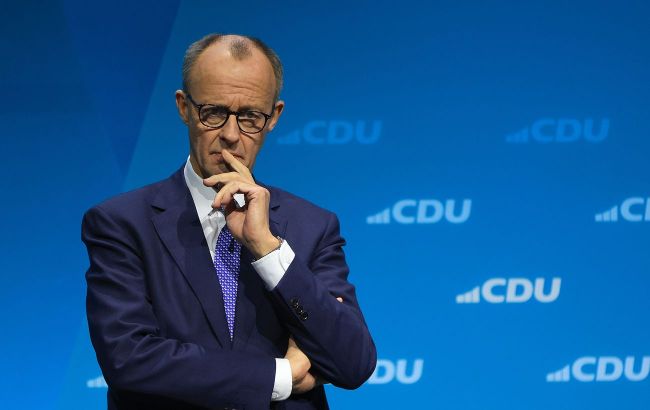Who set up Merz: How secret vote derailed Germany's chancellor appointment
 Photo: Friedrich Merz (Getty Images)
Photo: Friedrich Merz (Getty Images)
The almost guaranteed appointment of Friedrich Merz as the new chancellor of Germany has fallen through. The coalition is now looking for those responsible and ways out of the crisis.
RBC-Ukraine explains the reasons behind what happened, who in the coalition might have opposed Merz and why, as well as the possible scenarios for further developments.
Takeaways
- Why did the Bundestag unexpectedly reject Merz’s appointment?
- How will events unfold next, and are early elections possible in Germany?
- Who has benefited from the current political crisis?
The failed vote to appoint Friedrich Merz as chancellor shocked Germany. Such incidents have never occurred in the country's post-war history.
All the more surprising, given that coalition negotiations between the CDU/CSU bloc led by Merz and the Social Democrats went rather smoothly. The coalition they formed had a majority - albeit a small one - with 328 seats out of 630 in the Bundestag. And Merz was the sole candidate for chancellor from the coalition.
However, the first attempt to appoint him failed - only 310 deputies voted in favor, falling short of the required 316. Now Germany has plunged back into political uncertainty.
Why the vote for Merz failed
In Germany, the head of government is elected by secret ballot. So it's impossible to know exactly who within the coalition sabotaged the agreement and refused to support Merz.
Both coalition members - the CDU/CSU bloc and the Social Democrats - publicly deny any wrongdoing.
But there could be reasons on both sides to reject Merz’s candidacy. Among the Social Democrats, not everyone was in favor of joining a coalition with the CDU/CSU as the junior partner. The coalition agreement was supported by 85% of party members, meaning some opposition sentiment exists within the SPD.
Merz could also have been undermined by members of his own party. Even before the vote, he faced criticism within the CDU/CSU. One reason was that he abandoned one of his key campaign promises - to cut budget spending. On the contrary, at the end of the previous Bundestag session, he pushed through constitutional changes allowing increased infrastructure and defense spending through public debt. RBC-Ukraine had previously covered this in detail.
What's next
Currently, the Bundestag session has been suspended, and party factions are holding consultations on how to proceed. Most lean toward shortening the preparation process for the second round of voting and holding it on Wednesday, May 7. Otherwise, the vote may not happen until Friday, May 9.
For Merz, the situation is complicated by several factors. First, he already has a tight schedule of important international events this week, where he was supposed to appear as Germany’s Chancellor. This creates pressure to hold a new vote as soon as possible.
But there’s also the political aspect - due to the secret ballot, it’s unclear which internal factions Merz needs to work with to win their support. If he fails a second time, it won't just be a setback - it will be a full-blown political disaster. Merz is surely weighing these risks now.
What happens if Merz fails again
Under German law, if a Chancellor candidate fails to win an absolute majority (316 of 630 votes) in the second round, a third vote must immediately be held.
In the third round, a simple majority is enough - more votes than any other candidate. Since Merz is the only real contender, he would easily win this round.
Then German President Frank-Walter Steinmeier would have to decide whether to appoint Merz as Chancellor or dissolve the Bundestag and call new elections. Given Steinmeier’s political stance, he would almost certainly choose the first option.
Who benefits from Germany’s political crisis
Ultimately, Friedrich Merz is still likely to become the new chancellor. But facing such problems at the very start of his term will seriously weaken his political standing. Today's events showed that Merz cannot rely on solid support from his coalition allies. And he'll need that support to implement his agenda, which he described as very ambitious.
In the end, the biggest winner from the Bundestag crisis is the largest opposition faction - the far-right Alternative for Germany (AfD). Its leader, Alice Weidel, has already stated that the coalition has shown its weakness and called for early parliamentary elections. According to current opinion polls, the AfD is the clear frontrunner.

